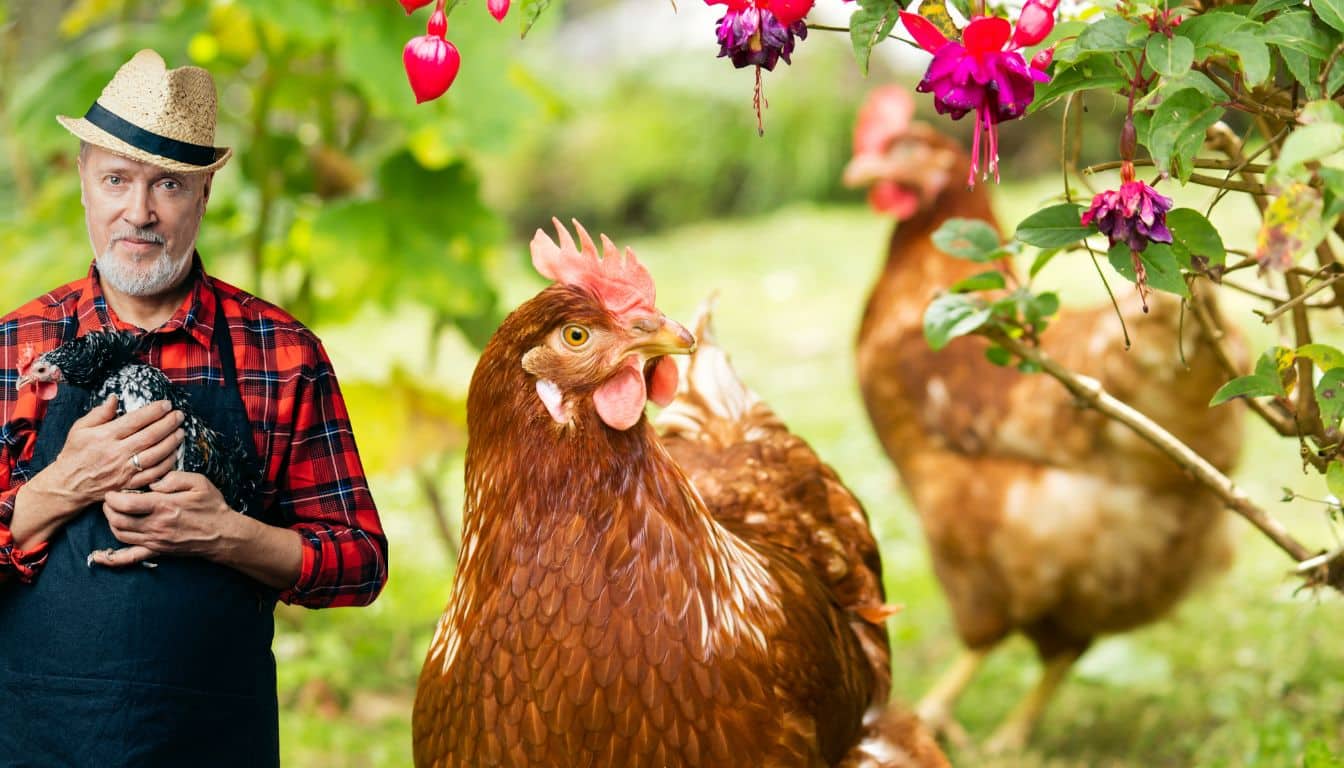The desire to see the chickens free in their own garden awakens images of a rural paradise where animals live in harmony with the surrounding nature.
However, behind this vision, there are some challenges that are essential to consider.
Find out with us how to manage them free-roaming chickensbetween advantages and possible pitfalls, to guarantee its well being and ensure harmony in your green space.
The charm and risks of freedom
Leaving the chickens free is a fascinating image of naturalness and serenity; however, it is important to prepare for an ever-changing garden.
Chickens have the instinct to scratch the groundan activity that, while beneficial to their health, can turn manicured flowerbeds into chaotic grounds. Ask yourself: how much of this are you willing to put up with?
Protection of delicate areas
If you have flowers or plants that you consider precious, it is best to take preventative measures. Chickens make no distinction and will tap on everything that passes in front of them beak: from your salad bunch to young shoots.
One solution is to install some small fences around these areas to protect them from accidental damage.
Keep predators at bay
In addition to the potential damage to your garden, there is the safety of chickens. Predators such as foxes and canids have a keen sense for easy prey, and a poorly fenced garden presents an open invitation.
Ensuring a safe environment is essential if you want to avoid unpleasant surprises.
The benefits of freedom
Despite its challenges, freedom enriches the lives of chickens in many ways. It allows them to have access to a wide range of natural foodsmaking them more robust and happy. Furthermore, their presence can promote the health of the garden itself: by scratching the soil, it aerano and help control pests, giving you great help in managing your garden more ecologically.
A chicken-friendly garden
It is essential for a peaceful coexistence design their own garden in order to meet the needs of both. Offer chickens specific spaces where they can scratch and search for food, such as areas rich in gravel or uncultivated land.
Use repellent shrubs and plants to mark off delicate areas, taking advantage of the natural power of some species that chickens tend to avoid.
The ideal fence
If you want a compromise between freedom and security, opt for one removable fence could be the ideal solution. It allows you to better manage the spaces, ensuring the hens have space mobility necessary while protecting your plants.
Remember to choose fences that are high and have a fine enough mesh to keep predators away.
Respect for neighbors
Finally, do not overlook the importance of the territorial context. Make sure there are none in your municipality restrictive regulations regarding free-range farming, especially regarding any noises or odors.
Always inform yourself from the local authorities and consider any measures to maintain peaceful neighborly relations.







